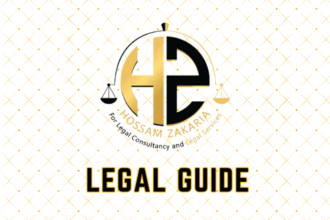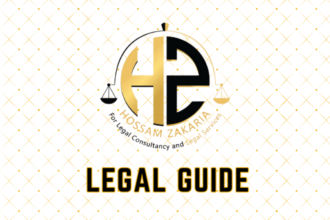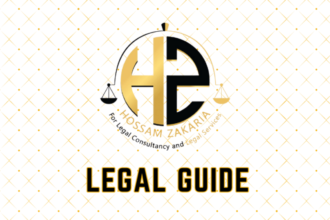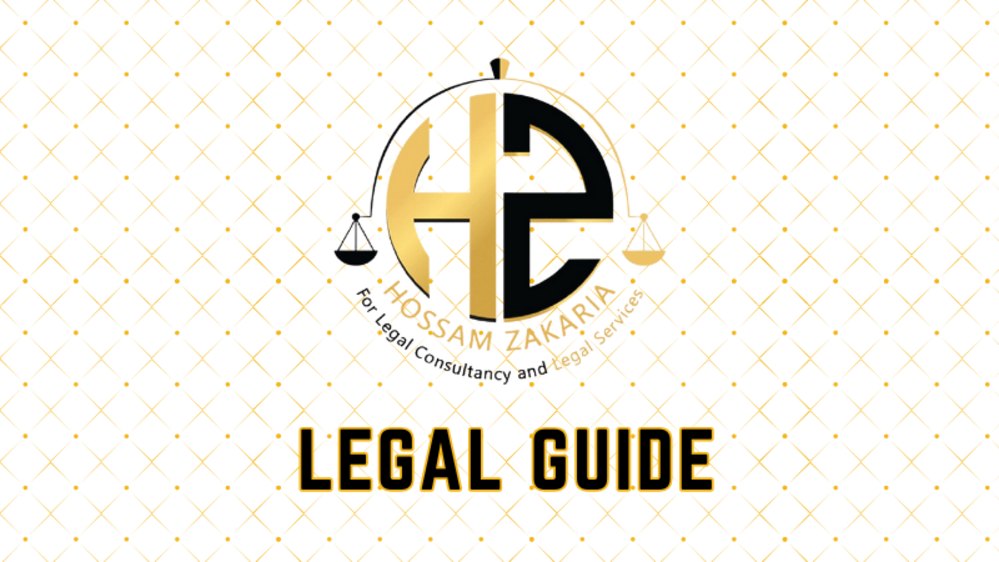Introduction: The Rise of AI and Legal Compliance in Qatar and the UAE
As technological advancement accelerates across the Middle East, the convergence of artificial intelligence (AI) with regulatory compliance has transformed the business landscape. Nowhere is this more evident than in the burgeoning automation of business processes in Qatar, where AI-driven solutions promise unparalleled operational efficiency but also raise complex legal questions. For UAE-based legal practitioners, executives, HR managers, and regulatory risk professionals, ensuring that automated systems adhere to both the letter and spirit of the law is critical, especially in light of recent legislative developments like Federal Decree-Law No. 49 of 2023 and related Cabinet Resolutions impacting data protection, anti-money laundering, and business process automation.
This article provides a comprehensive, consultancy-grade legal analysis of enhancing legal compliance for business automation in Qatar using AI technologies, with a particular focus on implications, best practices, and strategic guidance from the UAE’s legal perspective. In an era where AI can both enable and complicate compliance, understanding the evolving regulatory framework is paramount for remaining ahead.
Table of Contents
- Context and Legal Framework: Mapping the Regulatory Landscape
- AI in Business Automation and Legal Obligations: A Deep Dive
- UAE Law 2025 Updates and Implications for Qatar Businesses
- Comparing Old and New Laws: AI, Data Protection, and Compliance Strategies
- Risk Analysis: Noncompliance in AI Automation
- Practical Insights and Case Studies: Ensuring Compliance
- Best Practices for UAE and Qatar Businesses
- Conclusion: A Forward-Looking Perspective
Context and Legal Framework: Mapping the Regulatory Landscape
The Advent of AI in Qatar and UAE Business
The integration of AI in business automation is a key pillar in both Qatar’s National Vision 2030 and the UAE’s forward-thinking digital transformation agenda. Automated contract management, compliance screening, HR onboarding, and supply chain monitoring all leverage AI to drive efficiency and accuracy. However, these opportunities are matched by the challenge of ensuring automated processes are legally sound and compliant with rigorous GCC legal norms, especially under the evolving standards established by the UAE.
Key Regulatory Instruments
Legal compliance in this context aligns with an array of regulatory sources, including but not limited to:
- UAE Federal Decree-Law No. 49 of 2023 on Data Protection and Privacy
- UAE Cabinet Resolution No. 27 of 2024 on AI Governance
- Qatari Law No. 13 of 2016 on Personal Data Protection
- Qatari Law No. 20 of 2019 on Anti-Money Laundering and Counter-Terrorism Financing
- MOJ, MOHRE, and government circulars impacting cross-border data flows and automation
Why This Matters for UAE-Based Advisers
Given the deep economic and legal links between Qatar and the UAE, businesses operating regionally—or advising clients across borders—must align their automation initiatives with both jurisdictions’ legal standards. This underscores the significance for consultancy clients to understand not only the rules, but also their on-the-ground impact and how new regulations reshape compliance expectations.
AI in Business Automation and Legal Obligations: A Deep Dive
Understanding AI-Driven Automation Tools
AI in business automation encompasses machine learning-based decision-support, document generation, compliance monitoring, risk assessment, and more. Key applications include:
- Automating due diligence processes for KYC/AML compliance
- Monitoring HR compliance, payroll, and labor relations under MOHRE rules
- AI-powered predictive analytics for fraud detection and anti-money laundering
- Automated e-signature and contract management platforms
Each of these functions triggers legal issues regarding data accuracy, algorithmic transparency, consent, liability, and auditability. An effective compliance program must anticipate and address these concerns robustly.
Core Legal Obligations for Automated Systems
Legal compliance in AI business automation spans several areas:
| Area | Key Legal Obligations | Official Source |
|---|---|---|
| Data Protection | Obtain valid consent, ensure data minimization, comply with cross-border transfer rules, implement data subject rights | UAE Data Protection Law, Qatar Law No.13/2016 |
| AI Governance | Implement transparent algorithms, maintain audit trails, avoid bias, ensure explainability | UAE Cabinet Resolution No. 27/2024 |
| AML/CFT Compliance | Continuous automated screening, suspicious activity monitoring, record-keeping | Qatar Law No. 20/2019; UAE AML/CFT Regulations |
| Labor and Employment | Fair automated HR decision-making, discrimination avoidance, transparent appeals process | UAE Labour Law, MOHRE Guidelines |
UAE Law 2025 Updates and Implications for Qatar Businesses
Recent Legislative Developments
The UAE continues to set a regional benchmark for tech-driven legal regulation. The introduction of Federal Decree-Law No. 49/2023 and related Cabinet Resolutions has introduced:
- Mandatory AI governance frameworks
- New standards for cross-border data processing
- Enhanced algorithm accountability and risk management requirements
- Specific penalties for non-compliance in automated or AI-driven operations
Key Features of the New Legislation
Federal Decree-Law No. 49/2023 and Cabinet Resolution No. 27/2024 introduce distinct requirements for businesses that automate regulatory compliance using AI, including:
- Obligation to conduct AI impact assessments prior to deployment (with documentation kept for five years)
- Mandated transparency in algorithmic outcomes, including explainable logic for automated decisions impacting individuals
- Increased supervisory authority for UAE regulators, including random audits and on-site inspections of AI-driven platforms
- Higher fines for non-compliance, especially regarding sensitive personal data and automated employment decisions
Implications for Qatar-Based Businesses
Qatari businesses operating in the UAE or handling Emirati data subjects must map compliance standards across both legal environments. Key implications include:
- Reviewing and potentially redesigning existing AI automation processes to meet stricter transparency and consent standards
- Aligning internal policies with dual compliance obligations under UAE and Qatari law
- Preparing to respond to regulator inquiries or data subject complaints about AI-driven decisions
Visual suggestion: A process flow diagram comparing old vs. new compliance workflows under UAE Law 2025 for AI-driven HR automation and AML.
Comparing Old and New Laws: AI, Data Protection, and Compliance Strategies
Side-by-Side Comparative Analysis
| Compliance Area | Previous Law | UAE Law 2025 / Federal Decree-Law No. 49/2023 |
|---|---|---|
| AI Impact Assessments | No explicit AI risk assessments required | Mandatory documented AI impact assessment for each deployment |
| Algorithmic Transparency | Limited to ‘reasonable explainability’ in automation | Full transparency and right to explainability required for all significant decisions |
| Cross-Border Data Processing | Broadly permitted with standard contractual clauses | Stricter rules, regulator pre-approval required for sensitive personal data |
| Penalties for Non-Compliance | General fines and warnings | Increased fines, risk of business license suspension for repeated/severe non-compliance |
| Automated HR Decisions | Basic anti-discrimination requirements | Specific rules for fairness, appeals, and periodic audit of automated HR decisions |
Practical Consultancy Insights: What Businesses Must Do Differently
With UAE Law 2025, businesses must:
- Review and revise data privacy notices to reflect AI use and explainability rights for data subjects
- Update contracts with third-party AI vendors to include specific compliance covenants
- Invest in AI governance technologies—tools that track, log, and document algorithmic decision pathways
- Develop robust compliance checklists for periodic internal review (see checklist suggestion below)
Visual Suggestion: Place a compliance checklist table featuring steps such as: AI risk assessment date, impact documented, regulator notified, transparency controls tested, periodic review scheduled.
Risk Analysis: Noncompliance in AI Automation
Legal Penalties and Real-World Consequences
Non-compliance with the new AI automation and data protection rules exposes businesses to a spectrum of regulatory, financial, and reputational risks:
- Administrative Fines: Substantially increased under Federal Decree-Law No. 49/2023 (ranging from AED 100,000 to AED 10 million depending on the severity and recurrence of violations)
- Business Disruption: Regulators now have authority to suspend business licenses, impose operational restrictions, or mandate correction of non-compliant AI tools
- Litigation and Claims: Employees or data subjects can make direct complaints, opening the door to labor or privacy claims
- Reputational Damage: Publicized breaches or non-compliant automated decision-making can erode client trust
Visual: Penalty Comparison Chart showing old fines vs. new fines (AED 50,000 vs AED 1 million with examples of violations)
Compliance Failures: Case Examples
- A multinational HR platform once used opaque algorithms to automate employment screening in the Gulf. Under the new regime, failure to offer candidates the right to request explanations led to regulatory intervention and business disruption.
- A Qatari fintech firm automating KYC/AML due diligence without updating its records to prove the AI’s risk logic was audited by UAE authorities and faced both monetary sanctions and mandatory system review.
Practical Insights and Case Studies: Ensuring Compliance
Real-World Scenario: Multinational Payroll Automation
Consider a UAE-headquartered company employing staff throughout Qatar that implements an AI-driven payroll system to automate payments and monitor working hour compliance. The system processes sensitive personal data (names, salaries, attendance logs), triggers automated warnings for anomalies, and feeds HR reports to both UAE and Qatari authorities.
- Under UAE law, the company must conduct an AI impact assessment that documents risks of bias, explains automated decision logic, and ensures employees can appeal erroneous outcomes.
- Privacy notices must be updated to clarify automated processing, and cross-border data flows must be vetted to comply with both Qatari and UAE data transfer rules.
- An internal audit trail of algorithmic decisions must be maintained for at least five years for regulatory inspection.
Checklist: Steps for AI Compliance in Automation
| Step | Description | Responsible Department |
|---|---|---|
| AI Risk Assessment | Documented evaluation of impact before system launch | Compliance, IT, HR |
| Data Subject Notification | Update privacy notices to include details of automation and data subject rights | Legal, HR |
| Third-Party Contract Review | Add AI compliance obligations in vendor agreements | Legal |
| Transparency Controls Test | Periodic technical audit of algorithm explainability | IT, Compliance |
| Cross-Border Data Mapping | Map and document transnational data flows; seek regulator approval where needed | Compliance, IT |
| Incident Management Plan | Prepare protocols for potential breaches or regulatory findings | Compliance, Legal |
Best Practices for UAE and Qatar Businesses
Strategic Recommendations from Legal Consultants
- Proactively Engage with Regulators: Regularly consult UAE MOJ and Qatari data protection authorities regarding new deployments of AI, ensuring documentation is up to date and pre-emptively addressing queries.
- Integrate AI Governance into Corporate Policies: Adopt company-wide AI governance frameworks, including algorithmic transparency, risk accountability, and oversight at the board/c-suite level.
- Periodic Internal Audits: Schedule frequent compliance audits—at least annually—to assess ongoing alignment with UAE and Qatari law; document outcomes for regulatory review.
- Ongoing Employee Training: Educate HR, legal, compliance, and IT staff on the evolving regulatory landscape to ensure awareness of obligations and early identification of risk areas.
- Personalized Data Subject Communications: Issue clear, personalized notices to employees and customers when automated processing is introduced, emphasizing their rights and modes of recourse.
Contractual and Policy Recommendations
- Negotiate and embed AI compliance warranties and liability clauses in all relevant third-party contracts
- Update internal handbooks to include whistleblowing procedures for AI-related compliance breaches
- Maintain a centralized log of compliance activities (AI assessments, regulator communications, audits)
Conclusion: A Forward-Looking Perspective
The intersection of AI-driven automation and regulatory compliance in Qatar and the UAE is an evolving legal frontier. With the promulgation of comprehensive new laws such as UAE Federal Decree-Law No. 49/2023 and Qatar’s updated data protection and anti-financial crime frameworks, businesses face both heightened compliance expectations and significant opportunities to leverage AI for competitive advantage—provided their legal frameworks are robust.
For UAE-based consultants and executive leaders, the roadmap is clear: prioritize legal compliance as integral to automation strategy, anticipate regulator expectations, and invest in transparent, explainable, and auditable AI solutions. Fostering a proactive compliance culture will not only mitigate legal risks but also ensure sustainable digital transformation aligned with both UAE and Qatari regulatory aspirations.
Key Takeaways
- The legal obligations for AI-driven business automation have rapidly evolved, especially in the UAE and Qatar.
- Federal Decree-Law No. 49/2023 (UAE Law 2025) and Qatari data protection laws require increased transparency, documented risk assessments, and stricter data governance.
- Risks of non-compliance are substantial, covering fines, business disruption, and reputational harm.
- Practical, periodic compliance reviews and a culture of transparency are essential for ongoing success.
Businesses in both the UAE and Qatar must approach AI automation as a regulatory as well as a technical challenge—adopting best-in-class compliance frameworks to thrive as governance standards rise regionally.



